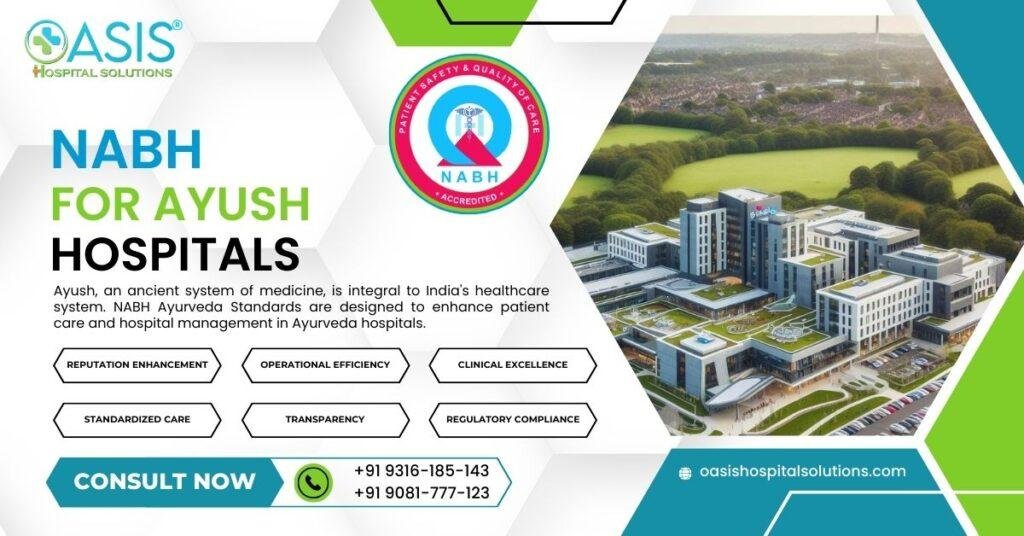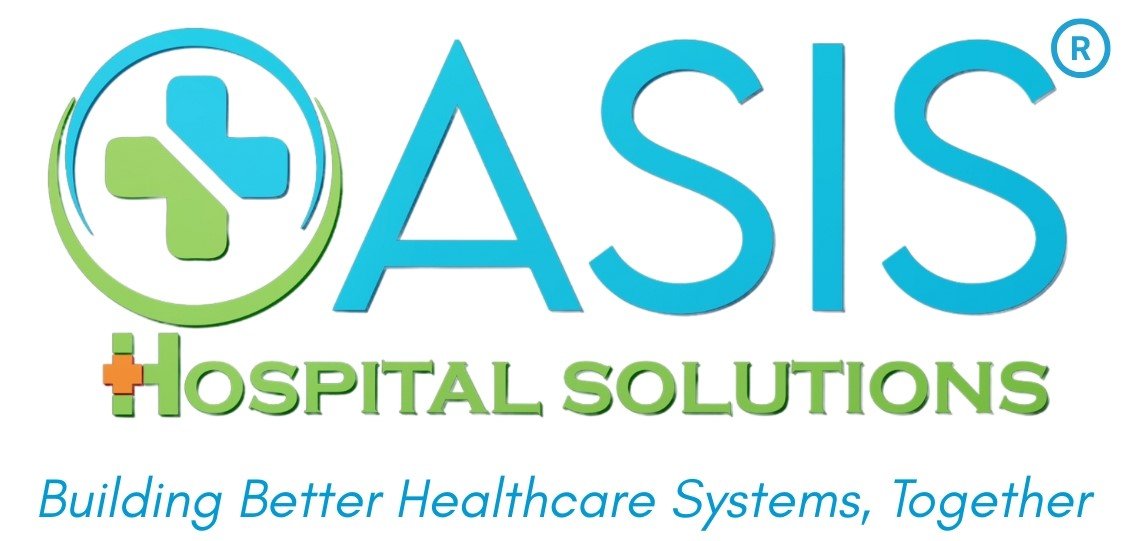NABH Ayush Hospitals

Introduction
Ayurveda, an ancient system of medicine, is integral to India's healthcare system. The National Accreditation Board for Hospitals & Healthcare Providers (NABH) sets quality benchmarks to ensure the efficacy and safety of healthcare services, including Ayurveda. NABH Ayurveda Standards are designed to enhance patient care and hospital management in Ayurveda hospitals.
Who Can Apply for NABH Accreditation for Ayush Hospitals?
All the AYUSH Hospitals with at least 10 in-patient beds strength, standalone or otherwise, established for inpatient care and day care therapeutic procedures/interventions for diseases or disorders with indicated procedures.
Ayurveda
>=10 beds
Yoga & Naturopathy
All Yoga and Naturopathy centers
Unani
>=10 beds
Siddha
>=10 beds
Homeopathy
>=10 beds
Panchakarma Clinic
>=1 Panchakarma therapy table
Terms And Conditions Apply*
Enhanced Patient Safety: Improved safety protocols lead to safer patient care.
Quality Assurance: Assurance of receiving high-quality healthcare services.
Informed Care: Better patient education and informed decision-making.
Reputation Enhancement: Improved reputation and trust among patients and the community.
Operational Efficiency: Streamlined operations and better resource management.
Clinical Excellence: Continuous improvement in clinical practices and outcomes.
Professional Development: Opportunities for staff training and development.
Work Satisfaction: Improved work environment and job satisfaction.
Skill Enhancement: Regular updates and skill enhancement through training.
Standardized Care: Assurance of standardized care and practices.
Transparency: Enhanced transparency and accountability in operations.
Regulatory Compliance: Improved compliance with regulatory requirements.
Convenience:
Quick Access to Funds:
Simplified Process:
Financial Planning:
Peace of Mind:
NABH Chapters for Ayush Hospitals
1. Access, Assessment, and Continuity of Care (AAC)
- Patient Rights: Ensuring patients' rights are respected and protected.
- Assessment and Reassessment: Regular evaluation of patient health and treatment outcomes.
- Emergency Services: Availability and efficiency of emergency care.
2. Care of Patients (COP)
- Patient Care Processes: Standard operating procedures for patient care.
- Medication Management: Safe administration and management of medications.
- Nutritional Services: Providing appropriate dietary services.
3. Management of Medication (MOM)
- Medication Storage: Proper storage conditions for medications.
- Prescription Practices: Ensuring prescriptions are clear and accurate.
- Medication Safety: Strategies to avoid medication errors.
4. Patient Rights and Education (PRE)
- Informed Consent: Ensuring patients are well-informed before consenting to treatment.
- Patient Education: Educating patients about their health and treatments.
- Privacy and Confidentiality: Protecting patient information.
5. Hospital Infection Control (HIC)
- Infection Control Policies: Implementing effective infection control measures.
- Sterilization Practices: Ensuring proper sterilization of equipment.
- Waste Management: Safe disposal of medical waste.
6. Continuous Quality Improvement (CQI)
- Quality Indicators: Regular monitoring of quality indicators.
- Patient Feedback: Utilizing patient feedback for improvement.
- Clinical Audits: Conducting clinical audits to enhance care quality.
7. Responsibility of Management (ROM)
- Leadership and Governance: Effective hospital management practices.
- Staff Training: Regular training for hospital staff.
- Financial Management: Efficient financial practices for sustainability.
8. Facility Management and Safety (FMS)
- Infrastructure Maintenance: Ensuring the hospital infrastructure is safe and functional.
- Safety Protocols: Implementing safety protocols for emergencies.
- Equipment Management: Regular maintenance of medical equipment.
9. Human Resource Management (HRM)
- Staff Credentials: Ensuring staff qualifications and credentials.
- Workforce Planning: Effective planning for workforce needs.
- Employee Welfare: Promoting employee health and well-being.
10. Information Management System (IMS)
- Record Keeping: Maintaining accurate patient records.
- Data Security: Ensuring the security of patient data.
- Information Accessibility: Ensuring relevant information is accessible when needed.
Duration of NABH Accreditation for Ayush Hospitals
The NABH accreditation for Ayurveda hospitals is valid for three years. During this period, hospitals must adhere to the standards and undergo periodic reviews to maintain accreditation.
